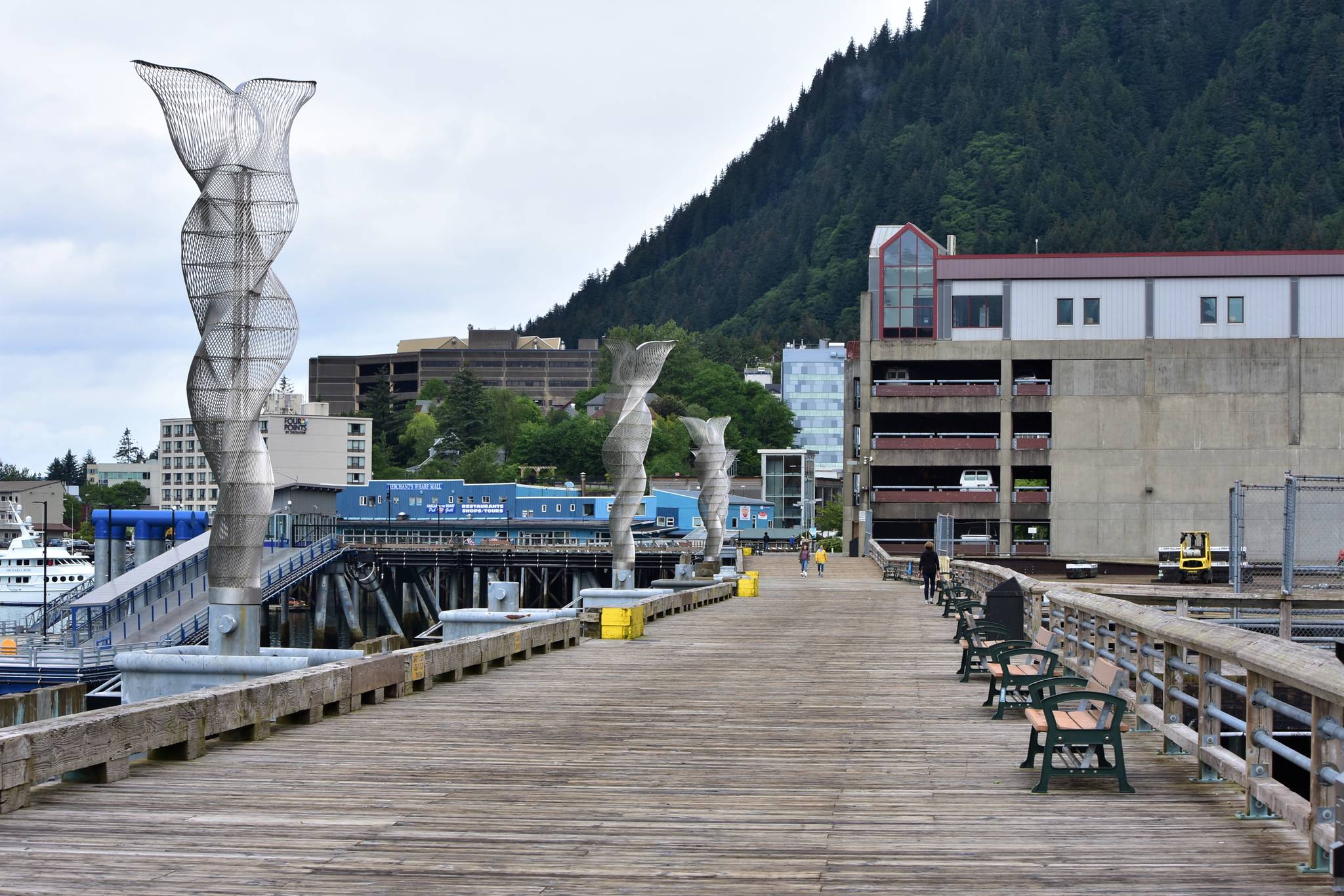The City and Borough of Juneau Assembly was joined briefly by Sen. Dan Sullivan, R-Alaska, at its meeting Monday night.
Sullivan gave city leaders an update on COVID-19 relief coming from Washington, D.C.
Sullivan was in Juneau, he said, speaking to the Assembly through video call, but would be returning to Washington at the end of the week. Additional relief funding is on the way, he said, as is a bill co-sponsored by himself and other senators that would allow cities broader use of disaster relief funding allocated by the CARES Act.
Sullivan said his bill, the Coronavirus Relief Fund Flexibility Act, has bipartisan support and he has personally spoken to the Trump administration about the legislation.
“I think they’re supportive, hopefully they are,” Sullivan said. “This essentially will enable our communities to use [CARES Act] money in a more flexible way, particularly for lost revenues.”
Congress put certain restrictions on the coronavirus relief funds to prevent cities from using the money to pay old debts, but some of those restrictions are proving troublesome not just in Alaska but nationally, Sullivan said.
“I think every governor in the country wants to see this passed,” he said.
Southeast Alaska has been hit hard by restrictions preventing cities from using the relief funds to pay for lost revenue from taxes. When the pandemic largely shut down Southeast’s summer tourist season, it cut the region off from the millions of dollars typically brought in each year by the tourism industry.
Counting CARES: Assembly examines planned use of funds
City and Borough of Juneau collects a head tax for each cruise ship passenger who arrives in the city, and that previously ever-growing number of passengers funds a number of revenue sources, such as sales tax, for the city. But without that influx of cash to the region, businesses and municipal leaders face difficult financial decisions.
In a Tuesday interview, City Manager Rorie Watt told the Empire without the ability to pay for lost revenue, the city is planning to pay for its budget using savings and budget cuts.
The Assembly passed a number of funding ordinances Monday night, all of which were either partially or largely grant-funded. Assembly members authorized $90,000 for repairs in Harris and Statter Harbors, $75,000 if grant funded by the Alaska Department of Fish and Game; $50,000 to match funds from the Rasmuson Foundation for arts funding and $233,960 for the city’s new electric bus and its infrastructure.
The bus and its infrastructure were paid for entirely through grant funding from both the Department of Transportation and Public Facilities and the Alaska Energy Authority, according to city documents.
But the Coronavirus Relief Fund Flexibility Act would allow cities more leeway when it comes to what relief funds can be spent on. It would also extend the deadline to use relief funds beyond the current Dec. 31, date, another issue causing concern for local leaders.
“If it’s successful it kind of changes the pressure dynamic,” Watt said. “All of a sudden it feels like regular municipal funds.”
When the legislation might actually pass is unclear. Sullivan met with Trump in May to discuss the bill and on Monday he told Assembly members the bill had passed out of committee.
Asked when action is expected on the bill, Sullivan spokesman Mike Anderson said in an email “Sen. Sullivan is hopeful that his bill, the Coronavirus Relief Fund Flexibility Act, or similar language, will be included in the next round of COVID-19 relief legislation that the Senate will likely consider when they resume session next week.”
[New bills could bring more coronavirus relief money, spending flexibility]
The bill is co-sponsored by a Democrat, an independent and several Republicans including Alaska’s Sen. Lisa Murkowski.
Karina Borger, communications director for Murkowski, said in an interview Tuesday predicting the timing of legislation is very difficult, but she knows additional relief legislation was a priority for several members of Congress.
This is not the first time federal COVID-19 relief bills have needed amending.
The Paycheck Protection Program, which gives businesses money to keep their staff on payroll, initially ran out of money in April and it was revealed much of the funds went to large publicly traded companies. When the program’s coffers were refilled, Alaska’s Congressional delegation told reporters provisions had been added to prevent that from happening again.
That same program needed to be amended for seasonal employers like many of the local guiding companies which typically have dozens of employees at the height of the tourist season, but only a handful when actually applying for the program. But that issue was rectified in late April.
During Monday’s Assembly meeting, Sullivan said anyone having trouble with federal assistance programs should contact his office.
Dana Herndon is the Senate Delegation Representative for north Southeast Alaska, from Yakutat to Angoon and can be contacted at 586-7277 or dana_herndon@sullivan.senate.gov or dana_herndon@murkowski.senate.gov.
• Contact reporter Peter Segall at psegall@juneauempire.com. Follow him on Twitter at @SegallJnoEmpire.

